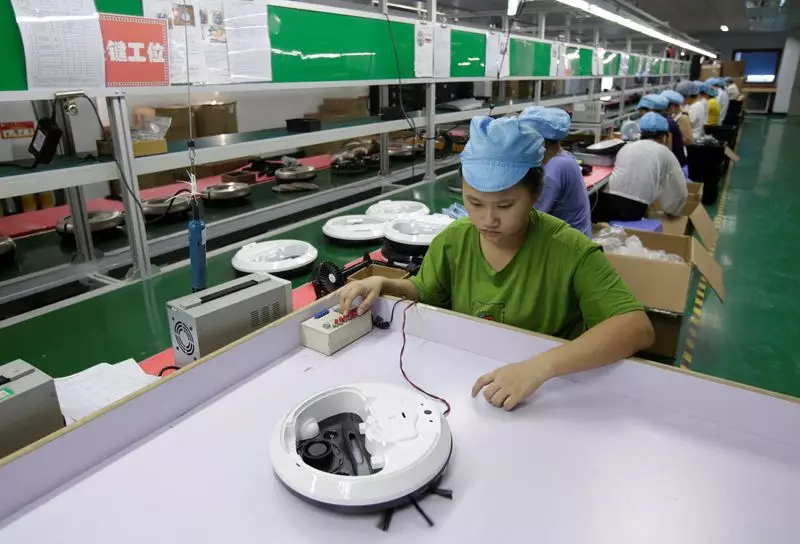China’s manufacturing activity took an unexpected hit in May, raising concerns about the need for additional stimulus to revive the economy. The official manufacturing purchasing managers’ index (PMI) fell to 49.5 in May from 50.4 in April, falling below the 50-mark that separates growth from contraction. This disappointing result was also below analysts’ forecast of 50.4, indicating a challenging economic environment in the world’s second-largest economy.
The decline in manufacturing activity has been attributed to various factors, including soft domestic demand, a struggling housing sector, and lackluster retail sales. Xu Tianchen, a senior economist at the Economist Intelligence Unit, highlighted the impact of these factors on the May PMI reading. Despite hopes for improvement in June due to new government policies such as the property rescue plan and the issuance of special sovereign bonds, the current economic outlook remains uncertain.
The sub-indices for new orders and new export orders both shifted back into contraction territory after two months of growth, signaling a challenging period ahead for Chinese manufacturers. Additionally, employment continued to decline, adding to the economic woes faced by the country. The slowdown in the broader services index, which also includes construction, further underscores the challenges in shifting towards a more consumption-driven growth model.
The International Monetary Fund (IMF) revised up its China growth forecast for 2024 and 2025 but highlighted the property sector as a key risk to growth. While China introduced measures to stabilize the property market, analysts believe that more comprehensive policies are needed for a sustainable recovery. Nie Wen, an economist at Shanghai Hwabao Trust, emphasized the importance of strengthening stimulus on the demand side and addressing credit channels to prevent negative effects on the economy.
The unexpected decline in China’s manufacturing activity highlights the challenges facing the economy as it seeks to recover from the impact of the property crisis. With soft domestic demand, a struggling housing sector, and slowing retail sales, the road to economic recovery remains uncertain. As policymakers consider additional stimulus measures, it is crucial to address the underlying issues in the economy to ensure sustainable growth in the future.

